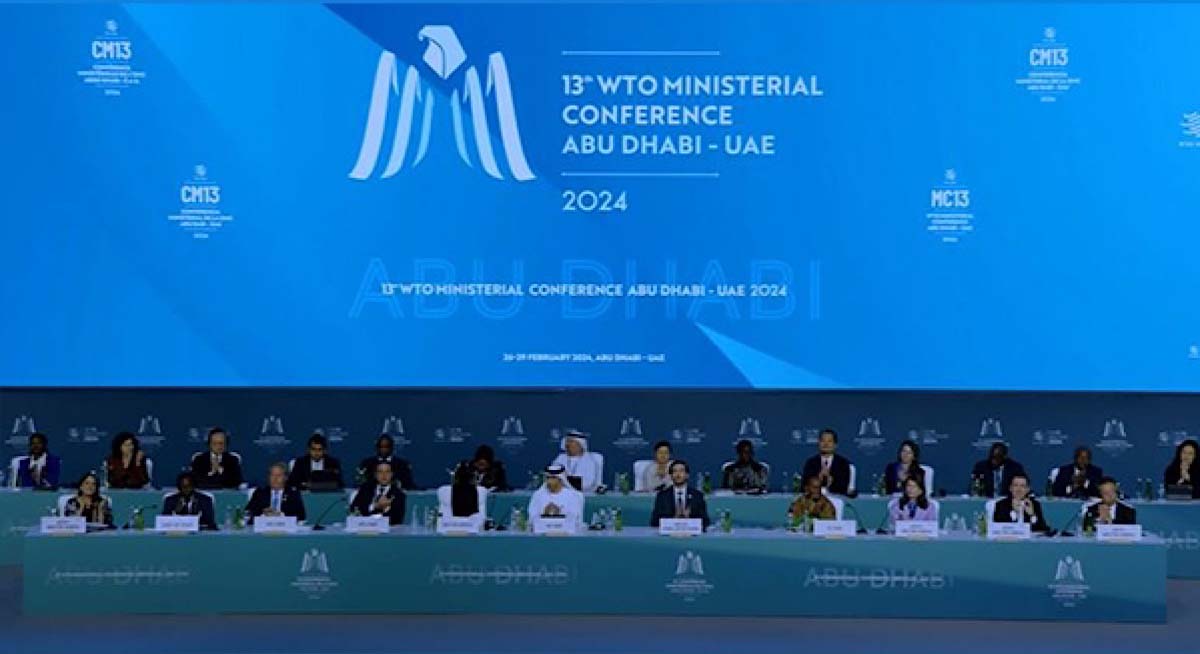In Abu Dhabi, the 13th Ministerial Conference of the World Trade Organization (WTO) has undergone an extension until Friday, March 1st, fostering further deliberations and outcomes on pivotal issues. This decision transpired subsequent to consultations between WTO Director-General Ngozi Okonjo-Iweala, MC13 Chair Thani bin Ahmed Al Zeyoudi, and ministerial facilitators, as disclosed by the WTO in an official statement. Originally slated to conclude on February 28th at 8 pm local time, the extension materialized as a strategic move.
The prolonged duration materialized following Ngozi Okonjo-Iweala’s call for members to extend their efforts in achieving convergence on the multifaceted negotiations during the ministerial assembly. The WTO emphasized in a statement, “During the Heads of Delegation (HoDs) meeting on February 28th, DG Okonjo-Iweala urged members to exert additional effort in finding common ground in the ministerial discussions, recognizing the dwindling time to reach substantive agreements.”
Delegates and ministers hailing from diverse corners of the globe convened in Abu Dhabi for the 13th Ministerial Conference of the World Trade Organization, commencing on February 26th, to engage in comprehensive discussions on global trade regulations. Established nearly three decades ago, the WTO, a global regulatory entity, currently boasts 166 member countries, including the recent additions of Timor-Leste and Comoros. The 12th Ministerial Conference (MC12) took place in Geneva, Switzerland, spanning from June 12th to 17th, 2022.
Within the ongoing 13th ministerial conference, India emphasized the imperative of affording WTO members a spectrum of policy options to foster digital industrialization. According to a press release from the Ministry of Commerce and Industry, India underscored the dominance of a few enterprises based in developed nations in the global e-commerce landscape.
India elucidated the substantial digital divide between developed and developing nations, posing a challenge to augment the participation of developing countries in global e-commerce. The nation reiterated that amidst the ongoing digital revolution and the proliferation of technologies such as additive manufacturing, 3D printing, data analytics, artificial intelligence, and the Internet of Things, a reassessment of the implications of the moratorium on customs duties on electronic transmissions is imperative, particularly for developing countries and least developed countries (LDCs).
Highlighting the need for developing countries to enhance their domestic physical and digital infrastructure, institute supportive policy frameworks, and cultivate digital capabilities, India emphasized its commitment to innovation and swift implementation in propelling its digital transformation. Through the Digital Public Infrastructure (DPI) paradigm, India champions innovation, democratizes technology, and nurtures a competitive ecosystem for digital enterprises. DPI has instigated a nationwide technological revolution across sectors such as commerce, credit, healthcare, payments, e-governance, and citizen services, demonstrating that a comprehensive focus on digital infrastructure, skills, education, and enabling policies can drive rapid, population-scale digitalization.









